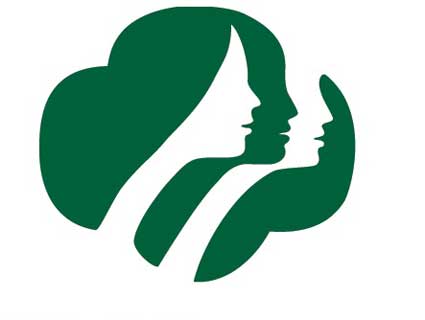
Courtesy Girl Scouts USA
When Susan G. Komen for the Cure announced on Tuesday that it would end funding for Planned Parenthood, anti-abortion activists, who had complained about Komen’s ties to Planned Parenthood for years, were delighted. Tony Perkins, the president of the socially conservative Family Research Council, applauded tha anti-cancer group for “putting women’s health first rather than fund the nation’s largest abortion provider.” Unfortunately for Planned Parenthood’s foes, Komen’s move led to a national outcry, and on Friday, Komen began to walk back its decision to cut off funds.
But Komen isn’t the only apparently apolitical organization experiencing pressure to break ties to Planned Parenthood. While reporting Thursday’s story on the right-wing boycott of Girl Scout cookies because of a Colorado council that allowed a transgender seven-year-old to join a troop, I learned that conservatives’ biggest complaint with the Girl Scouts is the organization’s ties to Planned Parenthood. Sure, inclusion of a transgender girl has some people up in arms. But the Girl Scouts’ supposed association with what Cathy Ruse, a blogger for the Family Research Council, described to me as “the biggest abortion business in the US” is the religious right’s main beef with the 100-year-old girls’ leadership organization.
The actual connection between Girl Scouts and Planned Parenthood is tenuous at best. Just as the Girl Scouts maintain that “sexual orientation is a private matter for girls and their families to address,” the group also refuses to weigh in on abortion or birth control. That means regional Girl Scout groups get to do pretty much what they want. Although some regional Girl Scout councils have partnered with a sex-education program hosted by local Planned Parenthood branches, a local leader in Chattanooga chose to sponsor abstinence-oriented activities instead. These sorts of choices aren’t within the jurisdiction of the national organization, which besides merchandising, PR and marketing, developing programming, and commissioning research about the nature of girlhood, develops ideologically flexible messaging about “empowerment,” “paths to success,” and reaching one’s full potential.
None of these facts have stemmed the flood of criticism from social conservative groups. It seems to have started in 2004, when Pro-Life Waco, a Texas group that opposes abortion rights, organized a boycott of Girl Scout cookies after the scouts endorsed a summer sex-education workshop sponsored by Planned Parenthood.
The local fight sparked a nationwide controversy, and Kathy Cloninger, then the CEO of Girl Scouts USA, took to NBC’s Today Show to face off against John Pisciotta, the co-director of Pro-Life Waco. “We partner with many organizations,” Cloninger said. “We have relationships with our church communities, with YWCAs, and with Planned Parenthood organizations across the country to bring information based sex-education programs to girls.” Pisciotta wasn’t convinced.
After the Today Show appearance, abortion foes’ war on the Girl Scouts only intensified.
HonestGirlScouts.org, a website that has served as a clearing house for many of the anti-Girl Scouts efforts and encourages a boycott of the organization, offers a timeline of the Girl Scouts’ “History with Planned Parenthood, the United Nations, Radicals & More.” A Facebook page called “Make the Girl Scouts Clean Again” aims to “separate the Girl Scouts from radical feminism in general and Planned Parenthood in particular.” Just this Wednesday, Austin and Cathy Ruse of the Catholic Family and Human Rights Institute told the Christian Post that they’re calling for another public boycott over the Girl Scouts’ ties to Planned Parenthood, and asking people to “forgo the Thin Mints this year because of the far-left sociopolitical agenda pushed by Girl Scouts HQ.” The Family Research Council has labelled the Girl Scouts an “aggressively pro-abortion” group.
The campaign against the Girl Scouts has powerful echoes of the right’s years-long and ultimately successful effort to force Komen to defund Planned Parenthood. Komen has clear ties to powerful conservatives and its founder and CEO, Nancy Brinker, was a Bush administration official. But that didn’t stop the group from becoming a target of right-wing outrage. Last September, Concerned Women for America published a 14-page indictment of the organization titled “The Link Between the Susan G. Komen Breast Cancer Foundation and Planned Parenthood.” In a 2009 article on the Concerned Women for America website, Melanie Palazzo conflated support for Susan G. Komen with donations to Planned Parenthood, arguing that “by giving to Planned Parenthood, we threaten the very thing we walk to protect,” a reference to the Race for the Cure, Komen’s iconic fundraising event. When Komen announced it was defunding Planned Parenthood, the Family Research Council, which had previously called the partnership between the two groups a “Mammosham,” gloated, “Planned Parenthood Had It Komen!”
The end of the Komen funding hurt, but it wasn’t a disaster for Planned Parenthood. In the 24 hours after Komen announced that it would no longer fund mammogram referrals at Planned Parenthood, the organization received $650,000 in donations from private individuals (including New York City’s Mayor Bloomberg). Komen is now backpedaling on its initial claim that it defunded Planned Parenthood because the group was under investigation, although a member of the Komen board told the Washington Post‘s Greg Sargent that there’s still no guarantee the Planned Parenthood funding will continue. But now that Komen has distanced itself from Planned Parenthood, could the Girl Scouts be forced to do the same?













